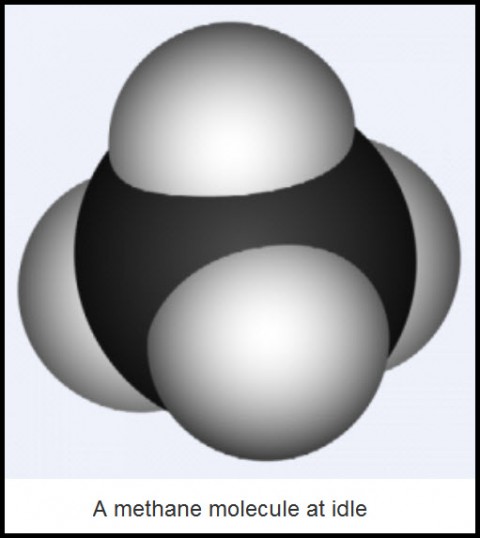Just when we thought it might be safe in another five or ten years to go back in the water, our muckraking colleague Matt Drudge is out with a report asserting that methane levels in certain areas of the Gulf of Mexico are a million times higher than normal. Drudge didn’t pull that number out of thin air, unfortunately – it came from a chemical oceanographer at Texas A&M named John Kessler. A “chemical oceanographer.” Doesn’t sound like a kook, does he? “Methane levels ranged from 10,000 to nearly one million times higher in some spots than normal concentration,” said Kessler, who had analyzed water samples collected from within a seven-mile radius of the Deepwater Horizon wellhead. The possible implication is that sea life could die off in a big way because of oxygen depletion, and that greenhouse emissions could cause the climate to change.
You can search the web for this story, but it is no longer available even at Drudge’s site. We found it linked at www.floridaoilspilllaw.com, but the whole methane angle seems to have fallen beneath the radar of the mainstream press. GoogleNews has provided spotty coverage of the Gulf disaster lately, presumably because the news-gathering organizations from which Google steals its stories have relatively limited access to the facts. Even so, there was a scary echo of Matt Simmons’ doomsday talk in the latest, officially acknowledged developments. Most significantly, it would appear that the bedrock separating the oil and gas from the terrestrial world is more fragile than the guys-in-the-know care to discuss. It is also clear that oil and gas seepage is occurring away from the wellhead, and it may be occurring on a catastrophic scale. But yesterday was the first time we heard Admiral Thad Allen himself allude to the possibility of a collapse in the seabed. This was whack-o, Matt Simmons talk just a few weeks ago, but it seems to be gaining currency these days with officially sanctioned spokespersons.
Not So Crazy
And has anyone else noticed that many of the crazy things Simmons has been saying all along remain essentially unrefuted, even if it is still possible to infer — or perhaps, pray — that he has exaggerated the extent of the threat? Dissolved methane turning larger and larger areas of the Gulf into a dead zone? Check. Well casing too damaged to hold pressure? Check. Seabed fissures leaking more oil than the wellhead itself? Check. It is hardly reassuring that each new solution tried by BP has failed in one way or another. We keep coming back to the relief well as the one solution that is going to work. It is more than a little disquieting, however, that no one can say this for sure.
(If you’d like to have Rick’s Picks commentary delivered free each day to your e-mail box, click here.)


There was a blowout in the waters off Indonesia in the ’70’s that lasted for several years before it was finally killed. It didn’t destroy the oceans. It did make a mess. The only difference is that it wasn’t in the U.S.A. and there was no CNN broadcasting every little detail. The mess BP makes will be cleaned up and the well will be killed. Pay attention to what else is happening in the world while you’re being diatracted by this.